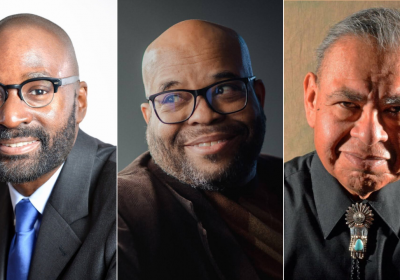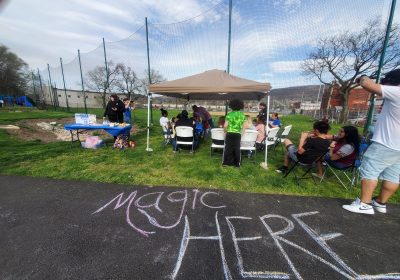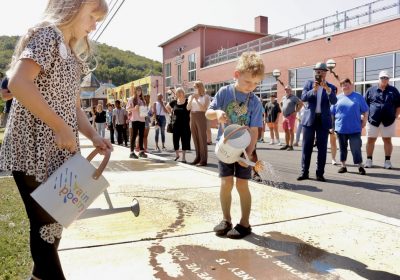Putting the humanities in action to make positive change is what we do — and what we hope to inspire others to do. So, we were excited to partner with the Pennsylvania Library Association (PaLA) in launching the first-ever Humanities in Action Award at their 2019 annual conference in Erie.
The award was created to spotlight and honor library programs that use the humanities as a tool for positive youth development. We wanted to celebrate libraries that were co-creating with their youth on developing programs that encourage deep engagement and work to create positive change in their communities.
PHC helped develop the criteria for the award but had no part in the judging of applicants.
Winning the award this year was York County Libraries for their powerful Youth Empowerment Summit (YES) — a series of education and advocacy workshops under the theme “Save the World,” organized by youth and library staff.
York County Libraries is a former Teen Reading Lounge (TRL) site, previously supported by PHC. Jennifer Johnson, Teen Forum Manager and Library Services Manager told us, “TRL definitely laid the groundwork for demonstrating that the youth-led approach to programming works.”
For this Q&A, we reached out to Johnson to tell us more about YES, the Humanities in Action Award, and how the humanities have become a mighty force for positive youth development in York.
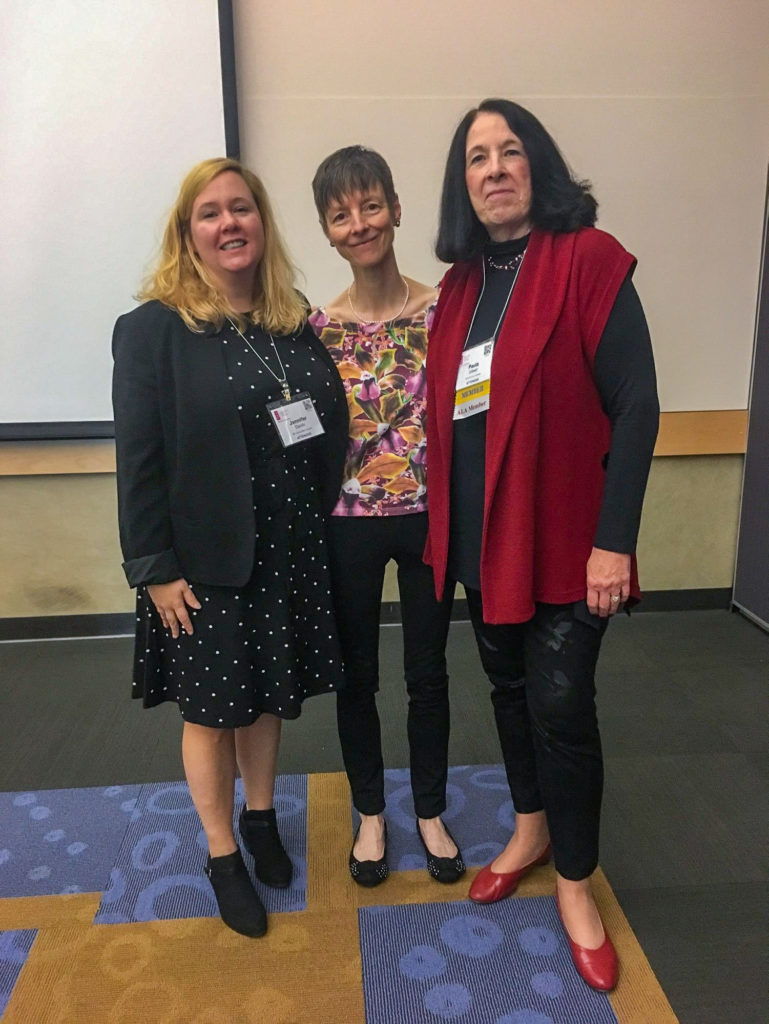
Congratulations on receiving the Humanities in Action award! What does it mean that your youth put the humanities in action?
For youth to put the humanities in action means to demonstrate curiosity about the world, collaborate to create change, and to demonstrate empathy.
The humanities foster confidence. Teens are trying to figure out who they are, where they are going and what they want to do when they get there. Providing opportunities for teens to test boundaries, discover possibilities and follow their passions helps to build confidence in their skills and abilities and creates a foundation from which they are able to fashion a bright future.
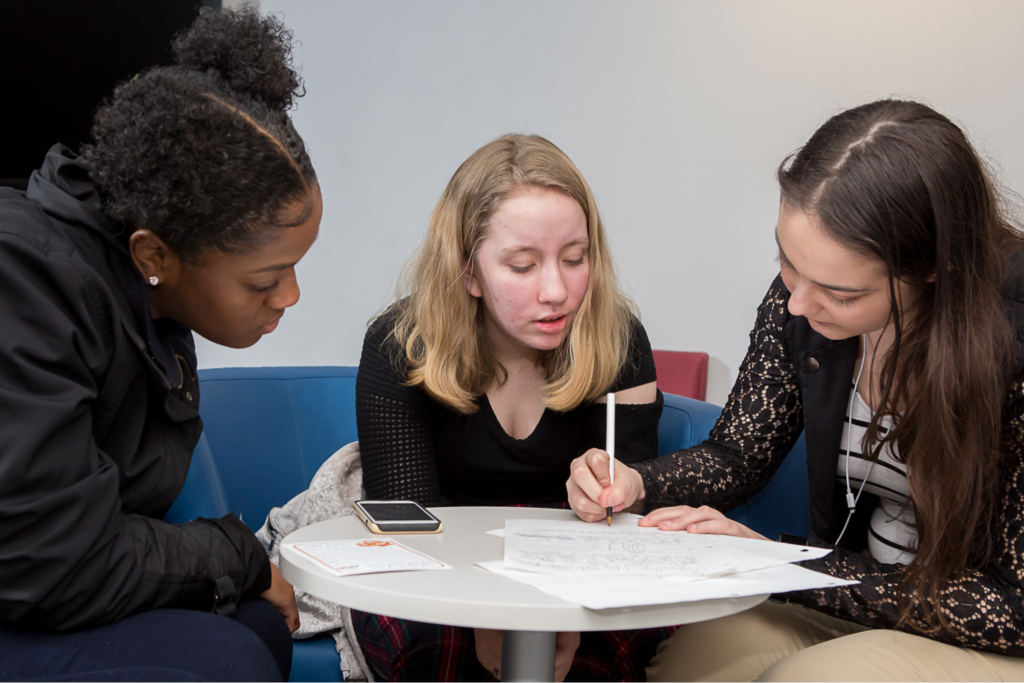
What is the Youth Empowerment Summit (YES) and why is it important?
YES is a day-long annual event comprising of workshops designed to engage teens in a variety of activities to stimulate their interest in post-secondary education, personal learning interests and advocacy opportunities.
It is planned and implemented by the Teen Leadership Committee, consisting of York County teens and York County Libraries’ Teen Services staff. The planning includes author selection, arranging appearances by the selected author and workshop presenters, managing student registration for the event, ordering supplies and catering arrangements.
One of the best things about the Youth Empowerment Summit is the opportunity it gives teens from all around York County to meet and connect with each other. Students sign up in advance for workshops and at YES, work on projects with students from other school districts, enabling them to put into action skills and competencies, such as problem-solving, creativity and empathy, all of which are regarded as essential for young people embarking on a college or career path.
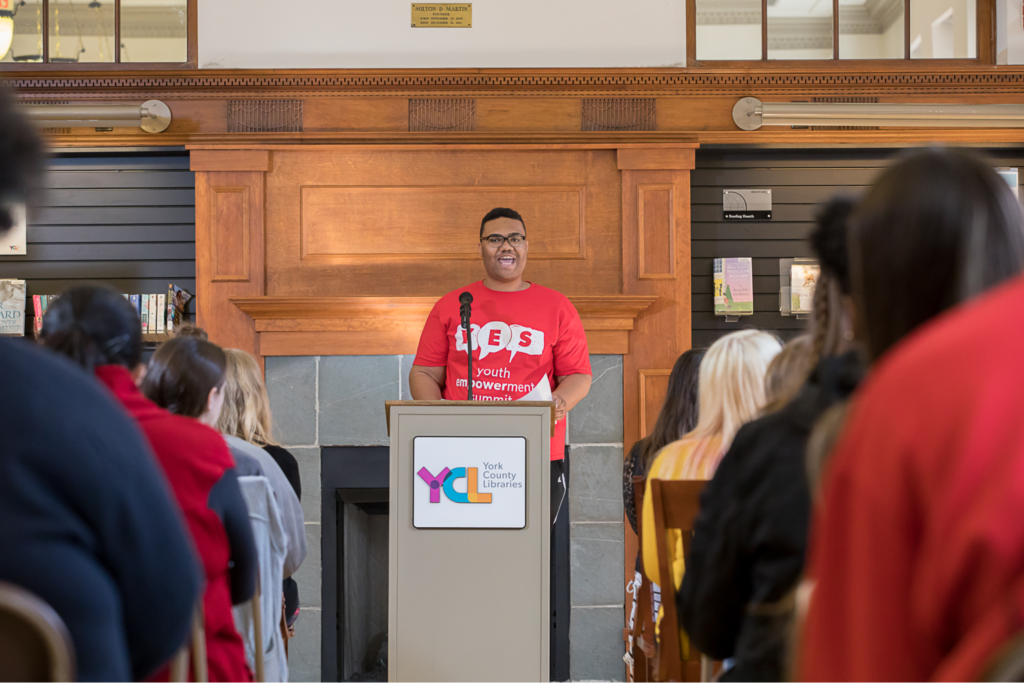
Why did the young people choose the theme of “Save the World”?
The library is uniquely placed to provide a platform for teens to speak out and in the last couple of years, we have built on the theme of empowerment to include the development of advocacy skills. This reflects the passions and interests of the current Teen Leadership Committee.
During the planning for YES 2019, we became aware of teens advocating for action to address the climate crisis, starting with the student walk out in Australia. As the media attention grew around the walkouts, Teen Leadership Committee felt that this was a theme that would resonate with teen attendees. They began researching the possible workshop topics.
In the course of our discussions, the teens realized that the theme encompassed not only the environment but spoke to a larger perspective that included self-reflection in addition to making an impact through words and actions to bring about change in the community.
Teen Leadership Committee member
“The Youth Empowerment Summit helped me hone my leadership skills and to see the power of literacy in creating youth advocacy.”
Were there any workshops that especially resonated with the young people?
York County Libraries ran a Capital Campaign to raise money for renovations and expansions to three of its libraries. Teens agreed that it would be a great Financial Literacy program for teen attendees to learn about library funding and find out more about libraries.
This was not one of the sessions that filled up first during preregistration, but it certainly transformed the understanding of those who attended. From informal feedback on the session, it became clear that teens were unaware of the library’s role in the community. This reaction generated conversation amongst the Teen Leadership group after the event: they found it hard to understand how people could not know about the library and all the opportunities available for teens. To me, it is interesting how this weaves into the wider narrative of how libraries don’t always do a good job of explaining what they have for teens to discover and what libraries have to offer to the community as a whole.
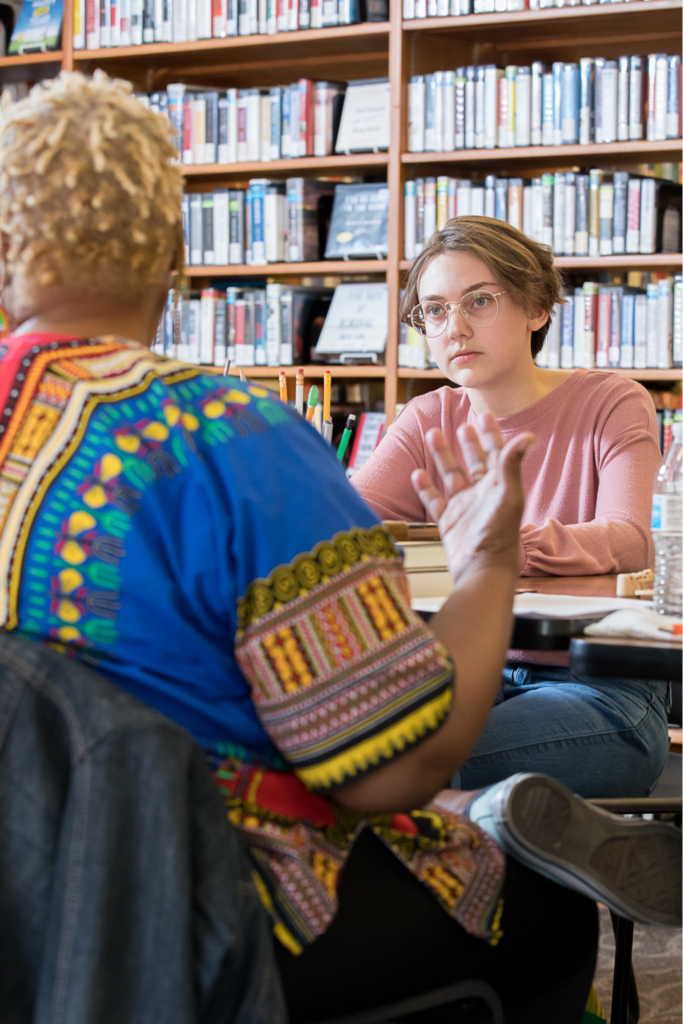
Why was it important that the Youth Empowerment Summit was led by teens?
One of the unique features of the Youth Empowerment Summit is that it gives the members of the Teen Leadership Committee the opportunity to implement the program that they have planned. Adult staff is there to assist but on the day of the Summit itself, teens are in leadership roles. Their t-shirts are a different color and they are identified as staff. It is not often that teens are permitted to be in prominent leadership positions, where the decision-making falls on them.
With a teen-led programming model, any ‘failure’ is viewed as a chance to learn, inspiring teens to rethink their approach and build on their experience. Learning that it is okay to make mistakes builds resilience and grit, all of which are valuable 21st-century skills employers are seeking.
9th Grader, York Academy Regional Charter School
“The Summit helps you to get ideas on what to do to get involved in York County.”
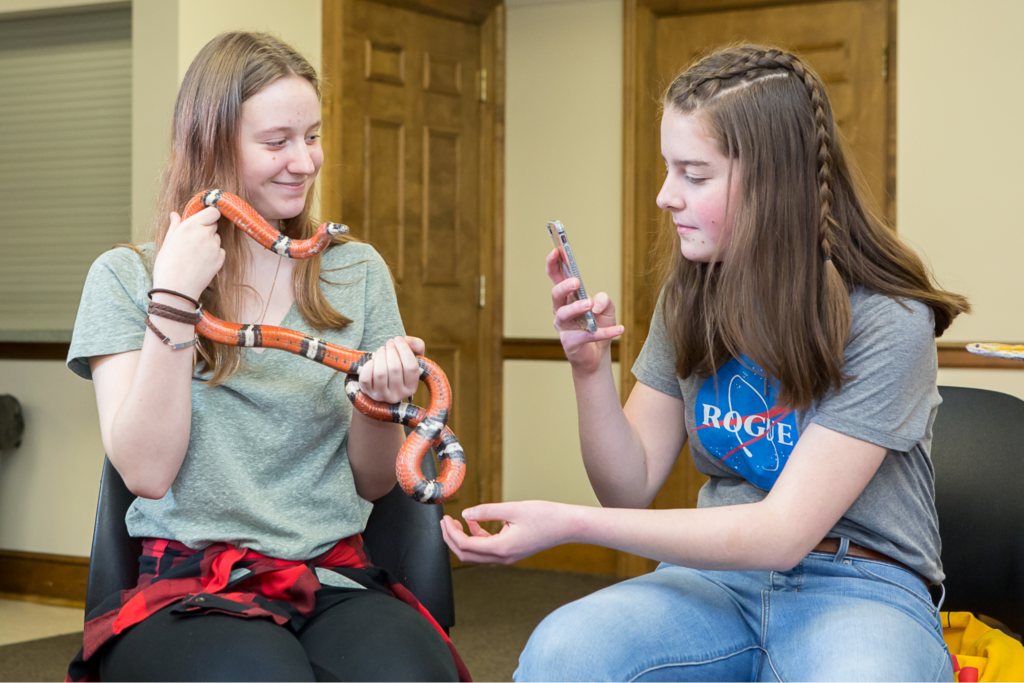
Were there any challenges as the adult assisting with a youth-led project?
Letting go of control has been one of the biggest learning curves for me in co-creating teen programming. Traditional programming models put the adult in charge of fulfilling expectations and managing success. Taking a step back and letting teens lead was at first challenging because it forced me to become aware of my own expectations and preconceptions about programming with teens.
Connecting teens with opportunities to pursue their interests and develop relationships with their peers and adults is empowering for teens and very liberating for me as a facilitator. Focusing on the process of connected learning rather than on the end product relieves some of the anxiety and pressure to succeed, thereby allowing space for creativity to develop and flourish.
9th Grader, York Academy Regional Charter School
“I loved how the writing workshop got us to interact with people we never met before.”
How do you think young people benefited from participating in the Summit?
According to the post-surveys, for the odd one or two, it was a day out of school with great food, but for everyone else, it was a transformative experience, not only personally but also in the way that youth view libraries and how they see themselves in relation to libraries.
The biggest learning experience for the Teen Leadership Committee was time management, one of the 21st century soft skills that employers are looking for in high school and college graduates. Setting goals and deadlines for meeting the goals is a life skill. There is a timeline for managing the implementation of the Youth Empowerment Summit and the teens get to experience juggling the demands of planning a county wide event with school work, extra curricular activities and family life.
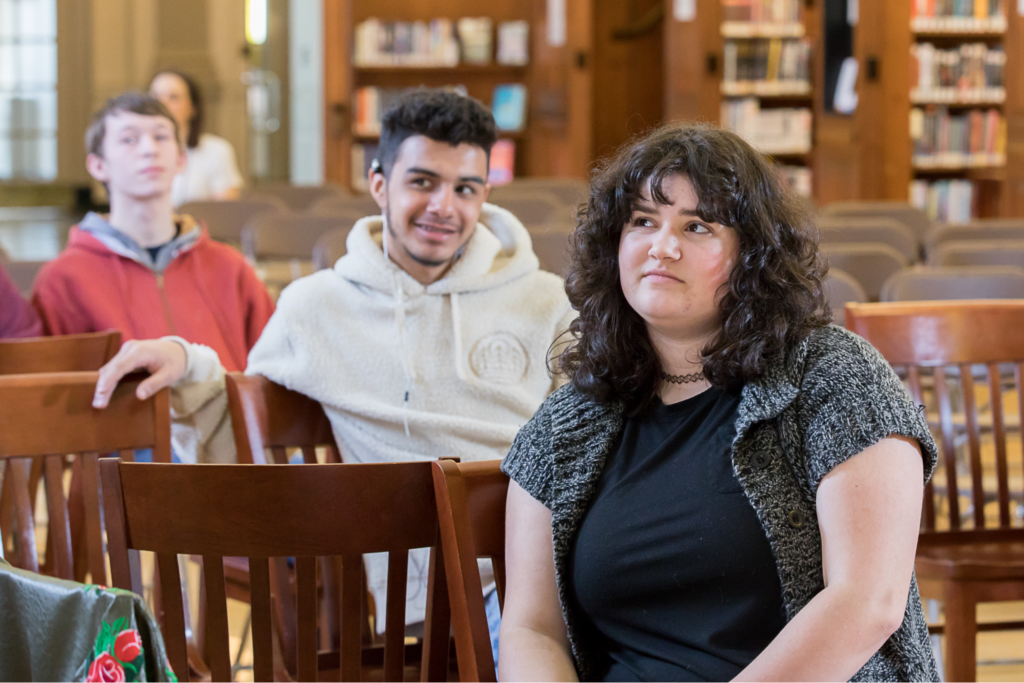
The York County Libraries are a past Teen Reading Lounge site — what impact did this experience have on the library’s future youth work, like the Summit?
Teen Reading Lounge models the approach to teen programming where projects are developed based upon the interests of the group. Big ideas are discussed and community-based projects created to bring these ideas to life. In this way youth is able to build a better understanding of themselves, their peers and the community in which they live. TRL definitely laid the groundwork for demonstrating that the youth-led approach to programming works. TRL also provides a useful tool to advocate for the value of this model for teen programming in York County.
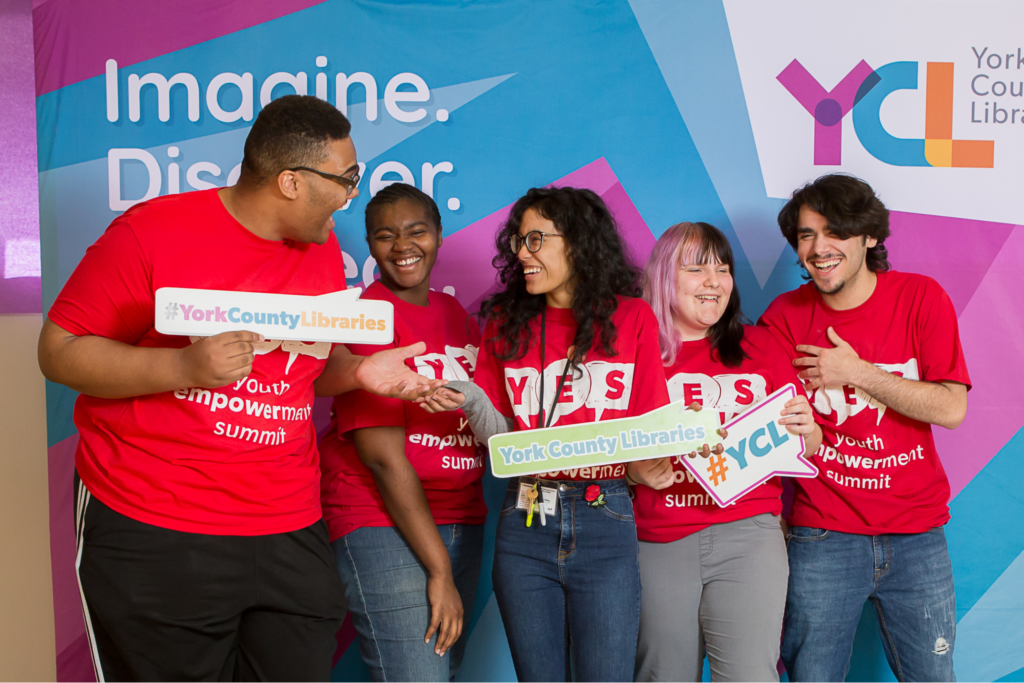
![[color – dark bg] PA SHARP FINAL FILES DB 72dpi [color - dark bg] PA SHARP FINAL FILES DB 72dpi](https://pahumanities.org/uploads/files/elementor/thumbs/color-dark-bg-PA-SHARP-FINAL-FILES-DB-72dpi-phgl7aimtfdpzt2rscvl43ksfv3asbbls19lsvuacw.jpg)
